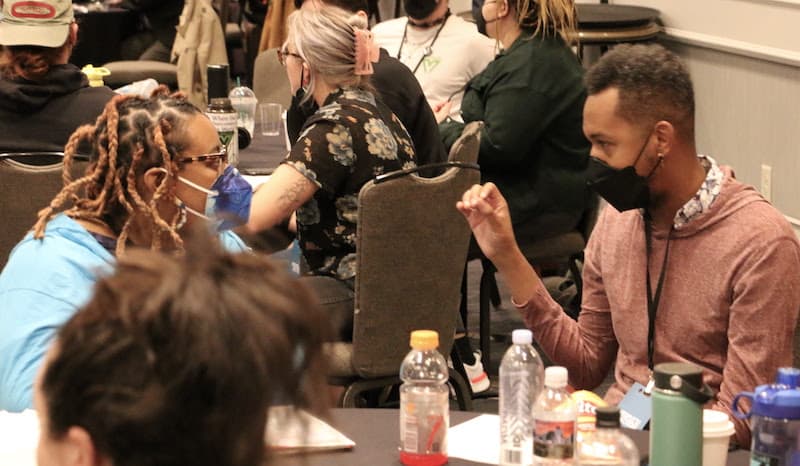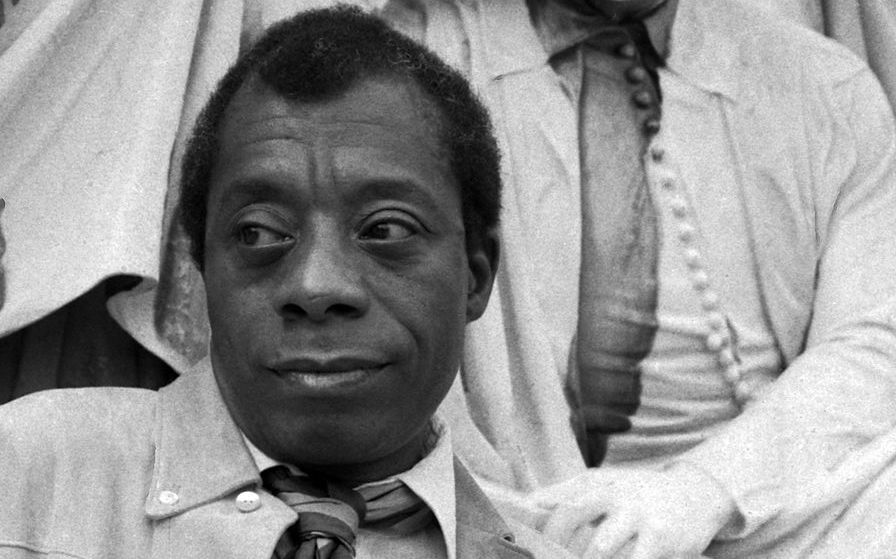“It’s got to be about how we are creating opportunities for folks on the ground to build their power. Because that is the only thing that we are about.” - Bill Przylucki, GroundGameLA
The movement for racial and economic justice in the United States stands at a crossroads. Will we unite to advance boldly and achieve real and lasting improvements in the lives of those who need them most, or will we lose our way in a forest of infighting?
My own approach to organizing owes a lot to what I have learned from Liberation Theology: to always center the experience of those closest to the pain of injustice.
This is a vision we share at People’s Action, and the reason I’m here: we are member-led, and member-driven. It is also why I am now doubling down on our commitment as an organization to lead from the grassroots, so all of our campaigns and strategy stay grounded in the lived experiences of our members. We truly believe those closest to society’s problems are closest to the solutions.

So for insights, I recently gathered our member-led groups for a frank discussion of the challenges we face. I was glad to compare notes with the directors of powerful, effective and innovative member groups, like Laura Martin from PLAN Nevada, Hugh Espey from Iowa Citizens for Community Improvement, Rosemary Rivera from Citizen Action of New York and Larry Stafford of Progressive Maryland. Thank you to all of the directors who joined us - here’s a full list of the member groups we serve.
Bill Przylucki from GroundGameLA, a fearless group whose mutual aid during COVID became a model for community groups nationwide, and whose citizen journalism project, KnockLA, led a groundbreaking investigation of white supremacy within the Los Angeles Sheriff’s Department, voiced what many of us were feeling.
“We can talk about problems, but before anything, we have to get on the doors and talk to our base - then we can work through it. We have to be grounded in that mission.”
This hit home with me because like Bill, I learned as a young organizer how to put the lived experiences of our members - those directly impacted by problems - first. We need to reclaim this fundamental understanding of organizing as service, and our vocation to put others first, if we want to truly create a movement for change.
And while skills like deep listening may seem old-fashioned in the digital age, they really are the bedrock of organizing. Building trust takes time, and it takes showing up - online, too, but mainly face to face. It takes truly listening, and putting those affected by society’s harms at the center of our work.
We are in a moment when people are divided, discouraged and in some cases deeply questioning the institutions they look to for guidance. We can overcome this by remembering that our goal is always service. We also do well to remember the wise words of Gale Cincotta, one of People’s Action’s founders: “We have met the enemy and it is not each other.”
The calling of an organizer is to center those closest to the problem. When we do, we naturally align. And when we create trust through relationships, this reminds us both of our power as human beings and our collective power when there’s agreement and alignment.
So at People’s Action, we have a sacred responsibility to share and strengthen these skills, within our organization and across the broader movement. That’s why we are expanding our training program so every one of our member-leaders, volunteers, and member organizations is fully grounded in this person-centered worldview and its proven techniques, through our Organizing Revival.
An Organizing Revival also calls us to Build a Bigger We, to get out of our comfort zone so we can reach people beyond the tent, beyond the choir - reach those who may think differently. But to do this, we must first get beyond ourselves to truly see each other.

The author James Baldwin reminds us that not everything we face can be changed, but that if we are to change something, we must face it. This must always be the organizer’s answer: to move forward, with eyes and hearts open, yet without discouragement.
An Organizing Revival calls us to both reckon with our current reality and to change it. It calls us to return to our calling and reclaim the vocation of an organizer, which is centered in the service of others, those in our communities hardest hit by inequality, racism and injustice. We must Return to some of our key practices and fundamentals, and recenter ourselves on our true calling and purpose: to serve, and to always move forward.


